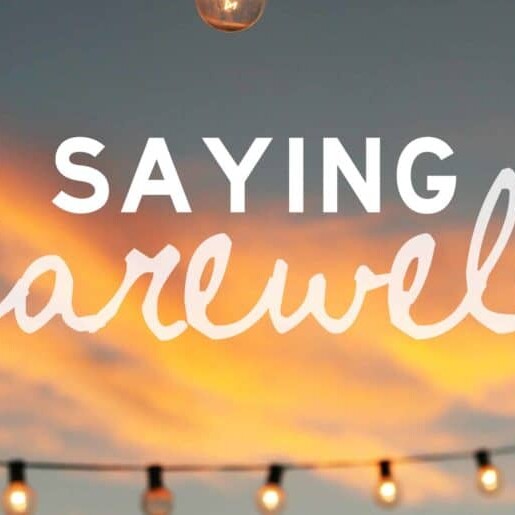Many years ago now, I was attending a gathering convened by the McConnell Foundation at a pretty hotel in Toronto. It was back in the early social innovation days, when a small group of grantees were working out what it meant to scale out their work and experimenting with pathways to get to real change. Frances Westley, one of Canada’s pioneer thinkers in systems change, was emerging thought leadership and making sense of these change strategies. This is when the term ‘Scaling Deep’ came to me and launched my own decade long inquiry filled with questions, collaborations and inspiration.
Where the idea came from: something important was missing
Frances presented her paper ‘Pathways to Scale’ where she identified various strategic interventions to shift systems. She invited the audience to join a table that would discuss each pathway. Each one represented strategies that related scaling up (influencing policy) and scaling out (spreading new models).
I listened as she read out the list, and then asked myself which one fit how we were working?
At the time I was leading a national NGO, Girls Action Foundation. We had scaled our work through a national network of grassroots organizations. We combined feminist practice, popular education and complexity approaches. And while I would say we were scaling out and doing systems change, we didn’t fit into the offered categories. Something important was missing in these concepts. They didn’t capture the work we were doing to connect local communities working to support social justice and leadership for young women.
I decided to join the ‘other’ table to sit with folks that felt like they didn’t fit in.
As we went in a circle to talk about our respective experiences, I reflected on and shared the question and idea- what about Scaling Deep? Deepening relationships, working to shift culture, collective healing? We had a great conversation at our table and it seemed to connect the group of outsiders into something not yet identified — it had traction. This idea intuitively resonated with my values and strategies we were employing, but did not have a framework to fit into systems change.
The question inspired me to incorporate Scale Deep into our change theory at Girls’ Action, and it also inspired me to follow an inquiry into developing the idea more fully. I saw the many ways our work and the work of others — were oriented to this concept and I wanted to share and explore it further with the world.
Inquiry, inspiration and collective explorations
In 2014, in my role as Director and through the work of the Carold Institute, we convened over 50 leaders in Montreal to collectively reflect on the practice and learning in Scaling Deep. We discussed how change work was fast paced and how scaling deep invited space for reflection and depth; how it invited us to think about the back loop in change work (known as creative destruction in the Panarchy Cycle) and how it paid attention to the culture level change we were seeking . This gathering generated energy and momentum for further inquiry and left me with more questions and inspired by possibilities.
In 2016, I collaborated with Ashoka Global, and the Rockefeller Foundation to convene women Ashoka Fellows and leaders to explore the challenges and opportunities for women social entrepreneurs. Many of the participants were doing brilliant work but didn’t fit into the typical scaling models that define success either. We introduced the Scale Deep framework as a way to redefine impact and to validate the unique approaches women Ashoka Fellows use to create change. It was picked up by Iman Bibars, Regional Director for Ashoka Arab World.

In 2018, we developed the framework further — in a systems change project funded through a WAGE Canada (women and gender equality). The initiative supported learning and evaluation of collaborations working on intersecting issues surrounding gender, housing, economy and justice in Canada. Our work discovered that Scaling Deep was an important frame to understand how feminist systems change initiatives build strategy and shift power. We updated a famous Systems Change model, Geel’sTransition Theory, to reflect this learning.
This had traction: spreading and building
Now, a decade later, it’s cool to see how the idea has been picked up and how it has evolved. The McConnell foundation continued their research, led by Darcy Ridell and built on the concept — adapting their change theory to include this important dimension.
The Ashoka Global WISER initiative, led by Iman Bibars, uses the frame of Scale Deep to support their fellows and to make the case for strategies that sit outside of traditional models of growth and metrics for success.
Countless other folks have picked it up and continued the jamming and I think there is more here to uncover.
Doorways
Today, Scale Deep is understood as the deep personal and broad cultural transformational work that is required to create durable systems change. Yet there is more to learn, question and understand about this.
My questions about this now include how it is contributing to change? How it is practiced? And what impact does it have?
We know many powerful change leaders work with a change theory designed to Scale Deep, yet this work is not broadly understood. There is an opportunity to shine a light on the ways in which leaders are Scaling Deep in the same way that we have celebrated those who have scaled up and out and to understand the practice better. How might we highlight the importance of taking this type of change seriously, as it is often the most long lasting and profound.
Many change leaders who identify their work as Scaling Deep, find it challenging to communicate, measure and to get it funded. They struggle to get resources and to prove their value to investors. In a world that values growth, measurement and progress, many funders do not understand its strategy or impacts.
As the change sector continues to learn and grapple with how to create the conditions for long term systemic change and the world calls us to shift our mindsets and values from outdated ways of being and doing rooted in dominance, hierarchy and harmful systems — to new ways rooted in relationship, collaboration and balance, it seems to me that Scaling Deep offers an important doorway.
My sense is it is timely, practical and currently undervalued. In short, worthy of further investigation.
Stay Tuned: our plans to dive in
It is through conversations with Barb Steele at Ashoka Canada that we have created the opportunity to dive deeper into this inquiry in partnership with Ashoka.
Over the coming months we will be connecting leaders across our networks who we see Scaling Deep in interesting ways, interviewing them and hosting peer-learning gatherings to try and collectively make sense of what this practice looks like.
Our ambition is to raise the prominence of this practice and the inspiring leaders who use it as a change strategy, as we build clarity around what it looks like in different contexts.
Stay tuned as we continue this inquiry..
There is a lot of learning over the past decade and a lot more nuggets of gold that we want to gather and share. If you are interested in joining us or have examples of scaling deep in your change work, get in touch.

Tatiana Fraser has spent her career starting up and growing ecosystems and networks for systemic change.
She co-founded the Girls Action Foundation, which became a network supporting the empowerment and leadership of girls and young women, scaling it nationally across Canada before stepping away and letting it fly. She was selected as an Ashoka Fellow for her work and recognized as one of Canada’s Top 100 Most Powerful Women by the Women’s Executive Network.
originally published at Refuge for System Leaders

Network Weaver is dedicated to offering free content to all – in support of equity, justice and transformation for all.
We appreciate your support!
donate in the box above or click here
Related Posts
September 24, 2025
Thank you & Farewell
November 4, 2024



